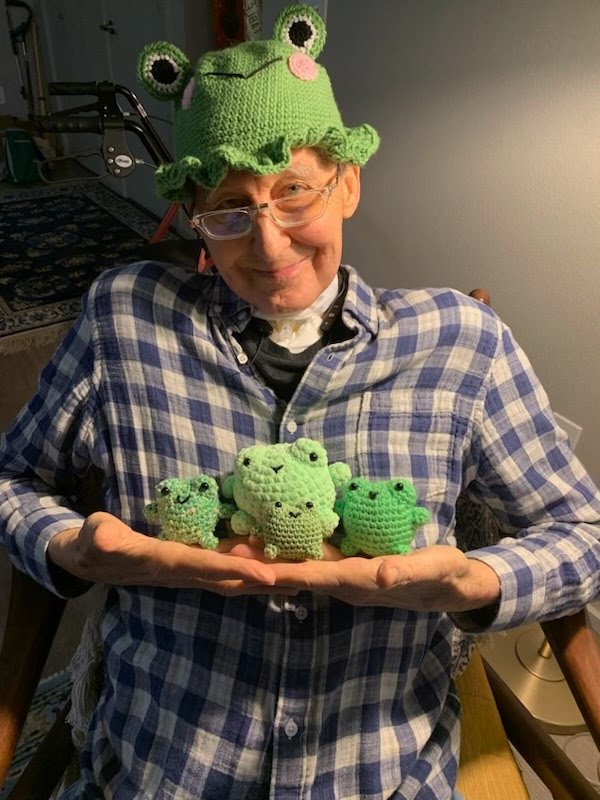Freedom, Eldership, and the Passing of a Dear Friend: Remembering Randall Mullins
On Sunday, June 22, my friend Randall passed away at the age of 76.
Randall was an absolutely beautiful soul: kind, wisdom-filled, easy to laugh. I knew him to be a man who had learned to lean into connection – not just with others, but within himself; not just to be friends, but to be accomplices. He was a justice-seeker, a love-radiator. He was a great friend.
As I walked my neighborhood a few days ago reflecting on Randall’s presence in my life and who I knew him to be, I began thinking about eldership — about why and how he had such an impact on me.
And as I meandered, this definition of an elder — which is to say, this definition of Randall — came to mind:
A person who has grown in age and learned to love in deeper and wider ways, while still embodying that beautifully human tension between comfort and the longings they feel emerging from within.
The Randall I knew fit this to a T.
Rather than remaining stagnant, Randall was constantly evolving into someone who could love more and more people in more and more ways.
In a memoir he wrote a few years ago (a “doorstop,” as he referred to it when he handed me a copy), he reflected on the racist and colonialist narratives he had held as a young man in the ‘70s and ‘80s. And in conversations, he would share about how his views on gender, manhood, and fatherhood had shifted and become more expansive over time.
At 72 years of age, he wrote, “I am still learning how much I don’t know and about how much I cannot yet see.”
He was a man who learned from his experiences and held a bias toward action.
In the 1980s, he travelled with a group of pastors to Central America and returned to complicate the American story of militarism and expansion. In the 90s, he violated an American embargo on Iraq to deliver medicine to folks there (and was fined $10,000 for it.) In the 2000s, he worked with Killian Noe to launch the Recovery Café in Seattle, a space helping folks maintain recovery and reduce substance-related relapse. And in the 2010s, his wife and he were moved by the words of Bryan Stevenson to co-found the Lynching Sites Project of Memphis.
Just one month ago, he emailed me about a new project of his: placing bulletin boards in his apartment complex so residents could communicate with each other without having to go through the building manager.
And through it all, Randall never pretended to be perfect – he was well-aware of how he embodied the tensions between his comforts and his longings.
Between the comfort he found in institutional organizations and his longing for the wildness of life.
Between the safety of structure and the deliciousness of spontaneity.
Between his love for intentionality and his impulse to crack a quick smile in the face of ridiculousness.
In this week of July 4th, a holiday on which people across the United States speak about freedom, I invite you to also consider the role of eldership in your life.
Because, as far as I can see it, the process of eldering is a practice of deepening into a freedom that doesn’t release us from the structures and constraints of our circumstances, but that invites us to dance within and beyond them.
Of leaning into a freedom that cannot be given, nor taken away — a creative and emboldening energy that sings up from within and excites us forward in acts of what Jacqui Lewis calls “fierce love.”
This is the kind of freedom I saw embodied in Randall.
Farewell Poem
by Randall Mullins
This man has been worn
whole and grateful by storm and love.
Let him die near some
who knew his flaws and failures
and loved him anyway.
Let him create easily
into that good last breath
which exhales into Mystery.
And if possible, let this be
in the company of some laughter.
Remember that
his friendship with darkness
included a light heart.
He was born in October,
when the leaves die in style.
He would welcome a departure
in that same month of colors.
But it could also be winter
when the lean limbed trees await rebirth,
or spring when resurrections abound.
He may die when summer warms the beaches
and the oceans sing him home.
Let words that heal be spoken
and entrusted to Grace and Eternity.
May those who blessed him with love and friendship
be blessed themselves.
Let all who gather or hear
of his passing
know that even in times
when he was blind
he could still feel love
gathering around him and within him.
He had come to know himself
as a man blessed
beyond words to describe it.
He had allowed Grace to find him
and lead him into the streams of gratitude,
and he chose to ride those streams into the Mystery of home.
Rest in Beauty, dear friend.
The following interview was conducted with Randall and his wife Sharon a couple months before his passing.
